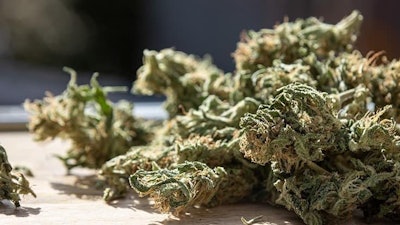
Smokable hemp regulations are one step closer to taking a 180-degree spin in Indiana. The state’s House of Representatives recently voted 69-28 to pass House Bill 1224, which would repeal the state’s ban on smokable hemp flower and prevent hemp regulators from enforcing regulations that are stricter than federal laws.
The battle over smokable hemp legality has been ongoing in the state, serving as a somewhat symbolic fight for other states in the U.S. dealing with a similar debate.
Senate-Enrolled Act 516 criminalized smokable hemp in the state in 2019. But hemp growers pushed back and challenged the law in federal court, and after several back-and-forth decisions, they’re currently waiting on a new ruling on it. Meanwhile, H.B. 1224 would override that lawsuit if passed.
RELATED: What’s Going On in The Smokable Hemp Market?
The contention over smokable hemp comes from two main points: it represents the most profitable avenue for hemp producers, but law enforcement argues they can’t tell it apart from illicit cannabis.
“Criminalizing it has done nothing to curb demand for the product—it’s just shifted [that demand] out of state,” says Justin Swanson, president of Midwest Hemp Council, a trade organization that supports both cultivation and regulatory advancements in the region’s hemp industry.
Swanson says he was part of helping craft H.B. 1224, which includes provisions that attempt to address law enforcement concerns. For example, if passed, H.B. 1224 would implement regulations similar to open container laws for alcohol, meaning it would need to be consumed at home, and the product’s package could not be opened in the car.
H.B. 1224 would also clarify that food containing hemp extracts, including cannabidiol (CBD), are not considered adulterated. In addition, the bill would encourage restaurants, breweries and other small businesses to partner with state farmers to create products.
The bill, which now heads to the state Senate for final vote, has garnered support from hemp advocacy organization U.S. Hemp Roundtable. It also has bipartisan support in the state’s legislature, with three Democrat sponsors and five Republican sponsors.
The state’s legislative session ends April 29, so a vote is expected before then.
























